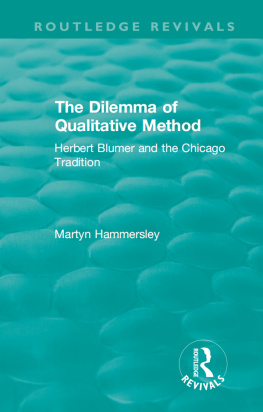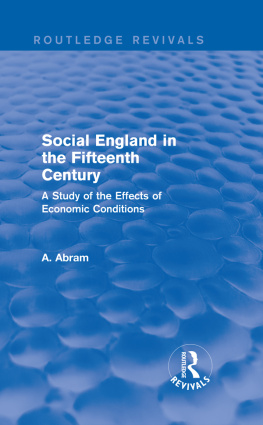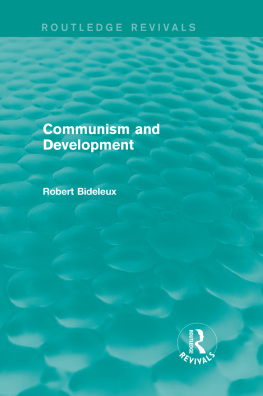Routledge Revivals
Economic Development and the Role of Women
First published in 1989, this book provides a macro-micro approach to economic development taking account of multi-level linkages, both inter and intra, that had been missed by previous analyses. The author argues that these linkages demonstrate that social and economic change may occur from the bottom up household/family level and not just from the top down economic order level using women as a vehicle to illustrate this. In the first section, the expansive body of development literature is summarised and critically reviewed isolating the primary strengths and weaknesses. Case studies of Malaysia, the Chinese Commune and the Israeli Kibbutz demonstrate that a theory which combines the analysis of the organisation of work, kinship and ethnicity can accommodate the experience of women in an integrated manner that traditional development theory has failed to achieve.
First published in 1989
by Avebury
This edition first published in 2017 by Routledge
2 Park Square, Milton Park, Abingdon, Oxon, OX14 4RN
and by Routledge
711 Third Avenue, New York, NY 10017
Routledge is an imprint of the Taylor & Francis Group, an informa business
1989 R. Taplin
The right of Ruth Taplin to be identified as the author of this work has been asserted by them in accordance with sections 77 and 78 of the Copyright, Designs and Patents Act 1988.
All rights reserved. No part of this book may be reprinted or reproduced or utilised in any form or by any electronic, mechanical, or other means, now known or hereafter invented, including photocopying and recording, or in any information storage or retrieval system, without permission in writing from the publishers.
Publishers Note
The publisher has gone to great lengths to ensure the quality of this reprint but points out that some imperfections in the original copies may be apparent.
Disclaimer
The publisher has made every effort to trace copyright holders and welcomes correspondence from those they have been unable to contact.
A Library of Congress record exists under LC control number: 89023632
ISBN 13: 978-1-138-23079-8 (hbk)
ISBN 13: 978-1-315-31676-5 (ebk)
Preface for the 2016 Routledge Revivals reissue
This book which was based loosely on my Doctorate from the London School of Economics is fast approaching its 30th anniversary. The issues that are addressed have not diminished in import. There is still a need, perhaps greater than ever, to analyse world development from an interdisciplinary perspective and one that incorporates women and their economic contribution to development in an integrated manner. The family and household continue to remain the underpinning of the world economic order with women making an essential economic contribution to the different levels of household/family, community, nation state and world economic order. This fact which is becoming even stronger by womens contribution to local entrepreneurship through microfinance schemes such as the Grameen Bank and those who are actually now running major corporations/multinationals continues to mean that women are not victims but active players in economic development and always have been. The degree to which women make an economic contribution and are in control of their own destinies does vary according to cultural and historical specificity. Most nation states have different forms of political economy and society which dictates the role that women play to some extent but it does not diminish the fact that women are active participants. This is true for communist dictatorships which still exist today in which women are rarely equal in any way to more capitalist societies where entrepreneurship has allowed more women to become wealth creators and innovators.
The need for a more encompassing conceptual framework in which to analyse the complexities of the economic roles of women at different levels still exists. The combination modes theoretical construct identifies three independent modes which incorporate their own internal dynamics and can be used to define social change in world development in a neutral, culturally and historically specific manner. The three units of analysis of the combination modes approach include the organisation of work, the organisation of kinship and the organisation of ethnicity.
By using the combination modes theory, the nature of social and economic change may be seen in terms of the particular combination of the three modes, including the various levels, found in a specific region of the world at a specific historical time. Social change may be initiated in any of the three modes, at any particular level from either the top down for example from the world economic order within the organisation of work or the bottom up such as the family within the organisation of kinship. Using this approach, social change may be initiated by one mode at one or more levels, for example social change initiated by change in the organisation of kinship may be manifested at the three levels of the family, household and lineage (clan). Each mode therefore has its own internal dynamic and the change occurs dialectically. This theory continues to have efficacy when determining the role of women in world development which is essential to understanding the vital role women play in the economy and society in terms of carers of the welfare of children and other family members, entrepreneurs, household treasurers, educators and working people in general at all levels of the economy.
The Centre for Japanese and East Asian Studies of which Prof. Taplin is Director won Exporter of the Year in Partnership in Trading/Pathfinder for the UK in the year 2000. She received her doctorate from the London School of Economics and has a GDL in Law. She is the author/editor of 19 books and over 200 articles. She wrote freelance for The Times newspaper for 9 years on Japan, Taiwan, Korea and was a consultant to the Federation of Electronics Industry for 9 years
Prof. Taplin was chosen by Routledge in January 2010 as the first author of the month for the whole of Asian Studies and continues to be a featured author. See for a list of her Routledge books https://www.routledge.com/products/9781138935464. Her most recently published books for Routledge are Intellectual Property Valuation and Innovation: towards global harmonisation in October 2013 and in February 2016 Managing Cyber Risk in the Financial Sector-lessons from East Asia, Europe and the USA.
She is Editor of Interdisciplinary Journal of Economics and Business Law (www.ijebl.co.uk) founded by her and colleagues. Professor Taplin has had a number of visiting affiliations with universities including a Visiting Professor at Osaka City University, Visiting Professor at the Faculty of Management, University of Warsaw, Poland, a Visiting Fellow at the University of Mumbai in January 2007 and in January 2008/April 2009 at the University of Bacheshir in Istanbul. In 2014 she was invited to lecture on IPR in Nepal. She has also worked for a number of law firms specialising in IP around the world on a project by project basis.
Economic Development and the Role of Women
An Interdisciplinary Approach
RUTH TAPLIN
Director of the Centre of Japanese and East
Asian Studies, City of London Polytechnic
Research Fellow, University of Exeter
Avebury
Aldershot Brookfield USA Hong Kong Singapore Sydney






